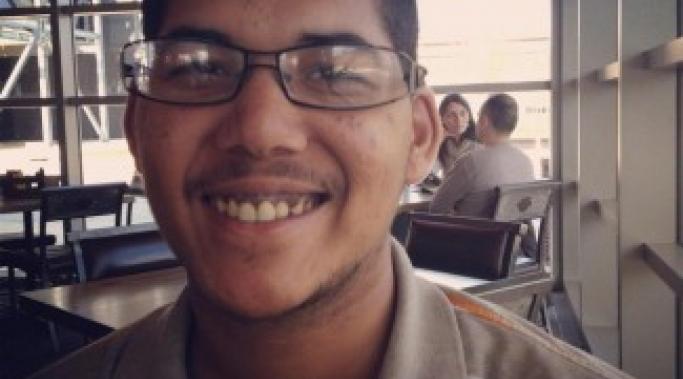Blogs
I live in a bad neighborhood, complete with an abandoned house next door. About a week ago, I saw a man with a crowbar and a bag enter the house through the previously boarded-up window. I called 911 to report a breaking and entering (B and E), and the police came out to investigate.
Or so I thought.
I walked outside, identified myself as the caller and prepared to positively identify the suspect. However, the police just looked at the forced-open window and left without saying a word. They didn't even interview me. I later learned that it's not the first time this guy has had the cops called on him--my landlord has called the police, but nothing has been done.
The whole experience has caused my symptoms of borderline personality disorder (BPD) to flare up. It has made me think about what a person with mental illness can do when they witness, or, God forbid, are victims of, a crime.
A few days ago a good friend of mine, Leah, asked for my opinion on a situation she was having with a friend of hers, Sarah. Leah was struggling to stay clean and sober, but recently, she recommitted to substance abuse recovery. Leah wanted to help her friend with a history of drug abuse, who is on methadone, so she has been driving Sarah to the methadone clinic three days a week. Unfortunately, Sarah recently started using drugs again and is pressuring Leah for drug contacts and even to drive her to drug deals. Leah decided she needed space from Sarah and asked if I thought seeking temporary distance was okay.
My response -- of course! As long as Sarah is overwhelmed by her drug-seeking behavior, she is not capable of being a good friend.
As a mental health advocate, I would like to share with you how it has been important to me to engage in conversations with other like-minded individuals suffering from a mental illness, and, in turn, share with them some of my own experience in battling my eating disorder, bulimia. I do not think it would have been possible to maintain my eating disorder recovery for a few years by now, without having shared some of my struggles with other people who could relate to my journey simply because they have had to cope with their own issues when it comes to mental health.
Practicing mindfulness is so important because we live in a frenzied world and life can be a zany ride. This leaves the window open just enough for the daily barrage of stressors to negatively affect your wellbeing. It numbs your ability to reason, feel and be responsive in the present moment and leaves you mindlessly functioning on autopilot. I’ve been there, you have been there. But, no one wants to stay there. Why? It can create an internal stream of stress and diminish happiness. What to do? If you haven’t started the journey already, begin practicing mindfulness with these five tips.
Even though we don’t want to admit it – the summer is slowly coming to an end. Students are taking over local Targets, jobs that had a summer vacation are starting back up and the season is slowly changing. Some people see the changing of seasons as being an annoying and stressful time to handle (especially if those people never want the summer to end).
Change is not always easy to grab onto and ride out calmly. For those who are ending summer jobs, financial burdens could quickly put nerves into overload. Money isn’t the only change that causes stress. Just the idea of the summer routine being disrupted can easily affect an individual who is struggling with mental illness.
That disruption could create overwhelming emotions and lead to self-harm as a coping skill, one we know to be unsafe.
There is a certain underlying stigma in society that is strong, impactful, and often devastating for many people who live with a mental illness in the workplace. Not only are particular professions extra stigmatizing for the person involved, but there is this false idea lingering out there that the person employed is somehow unworthy, their skills are questionable, and they are often pushed out of their position.
Confidence in the workplace can be a challenge for many people. Thinking and feeling insecure about your performance, job security, picking up on others' anxiety about work, or even interactions with co-workers can send many people into a negative mindset about themselves. Insecurity at work doesn't just affect you at the office, it can take over your entire life.
Tim has announced that when he turns 21 next summer he wants to move out. I can’t begin to explain all the ways that frightens me. Except for this past February when he knew he needed a few days inpatient, Tim has been stable for just over a year. I never, ever thought we would get to this place. He even spent two straight weeks alone with my parents in July, helping them with chores around the house and playing miniature golf. He hasn’t been able to do that since he was nine. Moving out means Tim will have to be responsible for all the things he doesn't realize he relies on us for, and for all the things he is responsible for now, but I remind him about almost daily. We can teach him these things, yes. But what we can’t teach him scares me more, namely, how to keep him safe out in a world that may automatically assume he’s dangerous, and may be dangerous to him because he trusts too much.
About five years ago, my friend Tuck married a woman with posttraumatic stress disorder (PTSD). Prior to the wedding Jane (not her real name) worked on her recovery just enough to stop her nightmares and flashbacks. With those big problems eliminated, Jane decided she didn’t want to continue with PTSD recovery work even though significant issues still remained. Tuck, wanting to respect Jane’s decision, didn’t press the matter. Instead, he set up a lifestyle that expected, accepted and supported Jane’s symptoms.
To have generalized anxiety disorder (GAD) is to worry -- a lot. While true, this is an oversimplification. “Worry” doesn't really begin to describe what happens in GAD. Everyone worries; it’s part of being human. It’s a given that people will worry about their grade on a test, for example, worry about their job security when downsizing is taking place, or worry about their child’s safety when he or she is away. But with GAD, the worry becomes too much -- all-consuming, really, and typically isn't limited to a single situation. Rather than having worries in one’s life, for someone with GAD, life itself is a constant worry.










I believe she will only be able to rid herself of her demons, and hopefully her BPD as well, when she's ready to confront the abuse of her father. If she can put the blame where it belongs, she may stop projecting that victim/perpetrator cycle on the present men in her life. These demons are a metaphor for the purgatory she has created for herself. That reality has consequences in the real world, but it need not be real in the tangible sense. Exorcising her demons will require the expenditure of real physical energy and probably the destruction of aspects of her personality. If this ever happens, and it's possible but not probable, then these demons will evaporate. They are only as real as one's personality is real. In short, reality is not the question, it's what you make of the things you feel to be real.